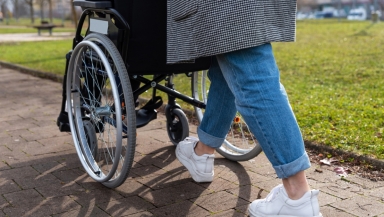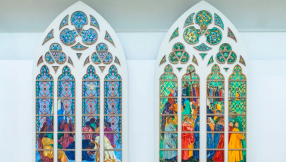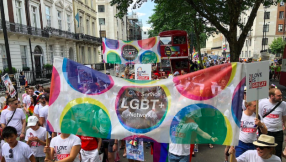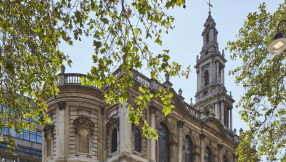
There's a lot of community engagement stuff happening with churches now and a lot of training, support and encouraging conferences to help with this.
This is great!
Although, I've noticed on a regular basis that once again, there is an area rarely looked at when we support and encourage churches in connecting with their local neighbourhoods.
It's an area that is huge and affects more than one in five working age people. This area is disability.
When I ask about this, I'm told that disabled people are in all areas of the community and as such are reached along with the people around them.
But this isn't the case. They are always the forgotten ones in this story.
I'm not one for siloing disabled people off into a subgroup - absolutely not! (Unless it's needed and asked for by specific disabled individuals.) But if we are not intentional in making sure disabled people don't get left out of our thinking, they WILL be forgotten or left behind. It happens all the time.
If we are working to improve things for those around us, why are disabled people left out?
Disabled people were the worst hit by the pandemic, are more likely be living in poverty, and will be the worst hit by the present and coming fuel crisis.
On average, it will cost £583 a month extra for a disabled person to live than a non-disabled person, according to disability equality charity Scope.
The hate crime rates against disabled people have skyrocketed and with no signs of abating.
That said, the many initiatives out there are not covering this area of outreach and have no disabled people advising, training or speaking at events about community engagement or working in public leadership roles. To have disabled people as trustees, speakers and involved in the work says to disabled people in the community that we matter because we obviously matter to the organisation.
In everything we do and discuss in planning things to bless our communities, we need to have a marker to remind us to ask the disability question, because if we don't, disabled people will be forgotten - again.
Do we know where to look and what to do? Do we realise the issues being faced by the disability community where 'The Church' is (as normal) staying silent?
This is why there needs to be training for those involved in not just public leadership, but those seeking to work more in community engagement. This is also why you need disabled people on your planning groups/advisory groups and as part of the teams on the ground. As it's said by many disabled people: "Nothing About Us Without Us!"
Here's some questions that might help you start thinking about disability:
Do you know where community/group homes are for those with different disabilities? Does anyone visit or provide pastoral care from the local churches?
Do public playgrounds have accessible swings etc in them - does something need doing about that?
There is a massive shortage of accessible social housing, meaning thousands of disabled people are trapped in their homes. Loneliness is a big issue. Do you know what your local authority is doing about that and what the church can do?
At the moment there is an outcry about the lack of evacuation plans for disabled people who live in high rise flats and the government having gone against the advice given in the Grenfell Tower inquiry. Are your councils doing the same thing? Can we add our voices to the outcry? Is there something we can do?
With the cost of living crisis, the money promised to those on universal credit will not go to those only receiving disability benefits - have you lobbied about this?
In the new schools bill, if it goes ahead, the fallout for children who have additional needs will be huge - possibly resulting in an even higher suicide rate amongst children. Have you researched this and found out what the issues are? What can we do to support families?
Those questions are just a starter.
The world of someone with a disability is hard. The Church and para-church organisations cannot and should not stay silent any longer.
Kay Morgan-Gurr is Co-Founder of the Additional Needs Alliance, part of the Evangelical Alliance Council. She is a visually impaired wheelchair user and blogs at www.ThePonderingPlatypus.com. Follow her on Twitter @kaymorgan_gurr













